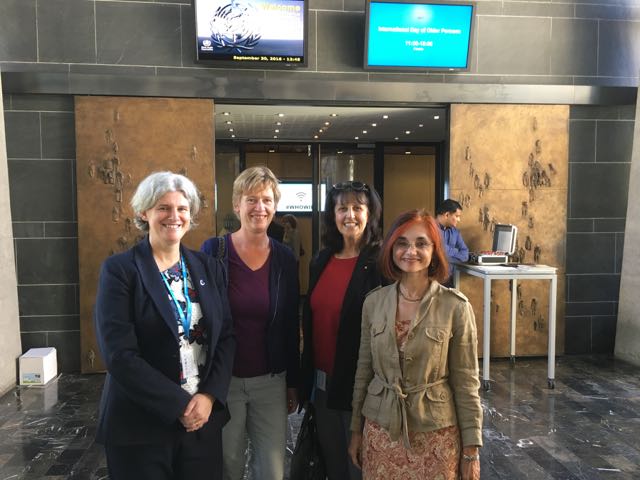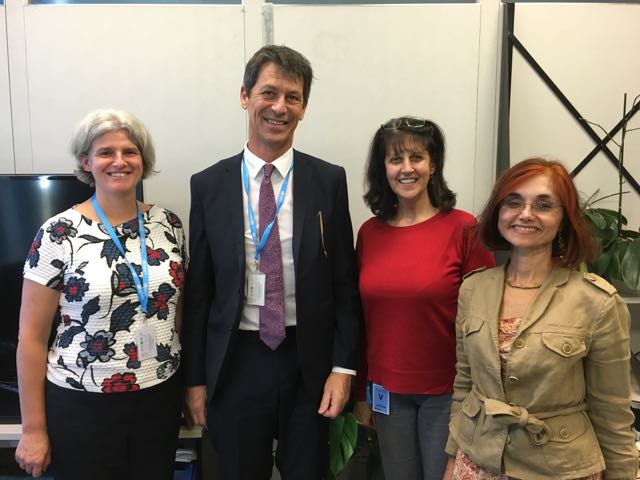
The World Health Organization (WHO), at the United Nations International Day of Older Persons (September 30), organised an event to support this year’s theme ‘Take a stand against ageism’. Cochrane Global Ageing, represented by Sue Marcus and Tracey Howe, participated in the event and made the following statement:
‘We’re delighted to be here on this significant day to celebrate the international day of older persons and the launch of Cochrane Global Ageing.
For those of you who may not be aware, Cochrane has been producing systematic reviews about health and health care for over 20 years and has had an official relationship with WHO for the past 5 years.
Cochrane Global Ageing will build on this relationship and continue to work with WHO to address the need for age appropriate systematic reviews and evidence synthesis methods that reflect both the multidisciplinary nature and diversity of ageing worldwide.
In setting up Cochrane Global Ageing, our first question was: to what extent do ageist attitudes impact on research in general and Cochrane Reviews in particular?
Our preliminary search of the Cochrane Library found only 45 reviews and 14 protocols from about 10000 records - that’s less than 1% of all reviews – and the term “ageing” showed no hits at all.
So we have to ask ourselves…. Is this evidence that ageism is present in our organization and policy practices? Or, does it indicate a problem of indexing and evolving terminology, making evidence difficult to find? We know for example that older people are under-represented in clinical trials. Clearly we need to look at this more closely.
In addition to this we’ll also be working with WHO on priority setting, to better reflect the needs and rights of older people. Ensuring wider dissemination, knowledge exchange and including older people in the process will be key.
We’re looking forward to creating a new era of evidence that doesn’t discriminate against older people and accords them the respect and dignity they truly deserve.’

Tracey Howe (Cochrane Global Ageing), Sylvia de Haan (Cochrane), Sue Marcus (Cochrane Global Ageing) and Ritu Sadana (WHO) meeting in front of WHO Executive Board room
In response to the statement, John Beard, WHO Director of Ageing and Life Course, said:
‘Many trials preferentially recruit younger adults excluding older people with multiple comorbidities and polypharmacy even though their physiology is quite different. Something like 80% of clinical trials exclude older people as subjects. It is absolutely crucial we move forward on this and it is great to see Cochrane leading the way.’

Tracey Howe and Sue Marcus meeting with John Beard and Ritu Sadana after the event
For more information on Cochrane Global Ageing contact Tracey Howe or Sue Marcus, or visit the website.

